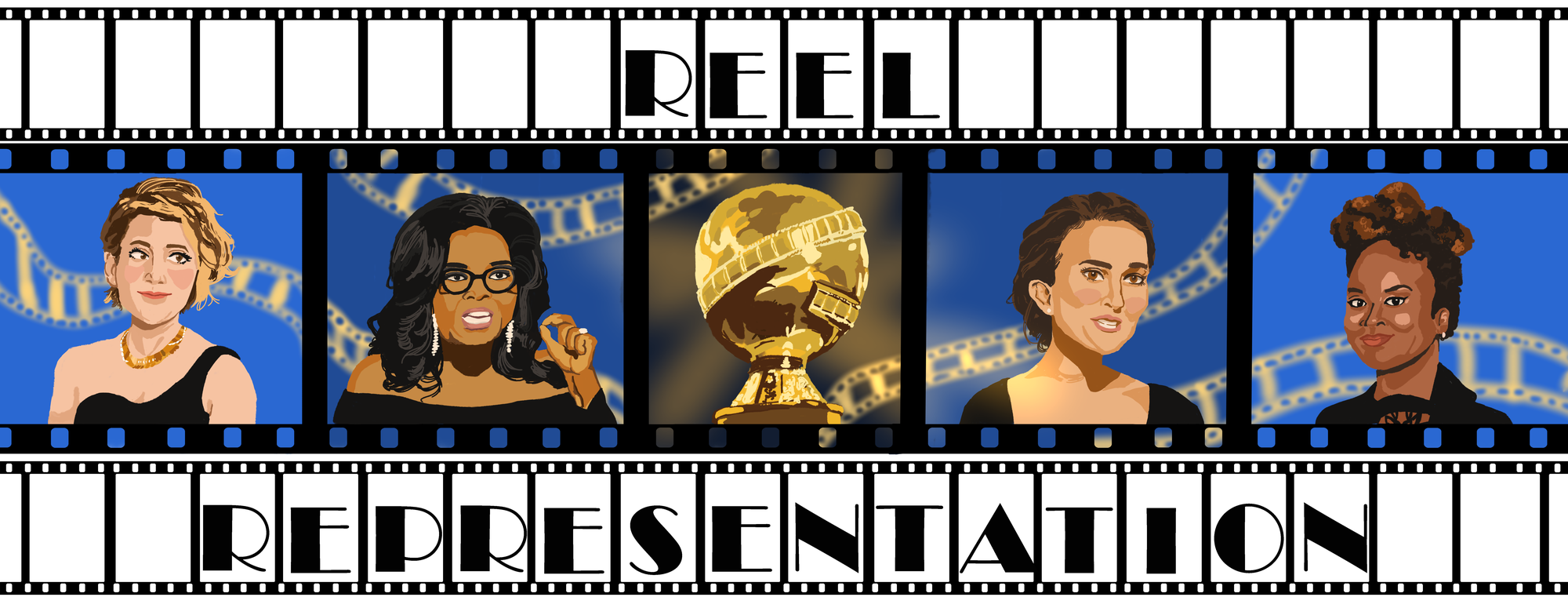Reel Representation: Hollywood’s women of color suffer a disparity in nominations, awards

(Claire Sun/Daily Bruin)
By Olivia Mazzucato
Jan. 16, 2018 6:29 a.m.
2017 was deemed by many the year of women in Hollywood – the #MeToo campaign helped oust dozens of sexual predators from their jobs and the three highest grossing films were led by female heroines.
And the 75th Golden Globe Awards was perhaps the most “woke,” female-centric awards show yet. Stars wore black in solidarity with those fighting against sexual assault and abuse, and some even invited activists as their plus-ones, transforming the red carpet event from a fashion show into a platform for awareness. The ceremony was peppered with moments that reflected the shifting paradigm in Hollywood, from the prevalence of the TIME’S UP movement onstage and in speeches to Natalie Portman’s on-air observation that all the nominees for the Best Director award were male.
2017 was certainly a great year for women in Hollywood – but more specifically, white women in Hollywood.
Yes, Oprah’s Golden Globes speech was incredibly powerful and inspiring. But by and large, women of color were widely excluded or marginalized from the supposed shifting gender dynamics for female-centric projects.
The Golden Globes are indicative of a longstanding pattern of the exclusion of women of color in Hollywood. So it is vital to remember that the broader movement for inclusion of women is limited in its effects since women of color are systemically excluded. It’s part of a frustrating, intersectional battle that many women of color in film face – trying to figure out how to fight for gender and racial equality at the same time.
The numbers of female nominees of color at the Golden Globes are abysmal, with only four women of color nominated – Hong Chau, Mary J. Blige, Octavia Spencer and Issa Rae – and only four of the nominated films or TV shows – “The Breadwinner,” “A Fantastic Woman,” “First They Killed My Father” and “Black-ish” – with narratives centered around women of color. None of these nominees won.
However, as is the problem with all awards show activism, it’s not necessarily the fault of the Golden Globes – they serve as the flash point for a larger discussion about industry practice. Statistics examining the entire industry show that of the top-1000 grossing films of the last decade, exactly three films each were directed by black women and Asian women, respectively, while only one film was directed by a Latina woman.
The issue of exclusion obviously has to be attacked earlier down the line, ensuring that high-quality projects are not only being pitched by women of color but are also greenlit. The Golden Globes can’t nominate projects and performances that don’t exist.
One thing the Golden Globes can do is acknowledge good work when it is there. While most deemed the lack of a directing nomination for Greta Gerwig to be a snub, there were far fewer calls for “Mudbound” director Dee Rees to be nominated. While Gerwig’s “Lady Bird” received four nominations – including a writing nomination for Gerwig – and won two awards, “Mudbound” received only two nominations: a supporting actress nod for Blige as well as a nomination for her song “Mighty River.” Rees’ direction created an incredibly moving and nuanced portrayal of the Jim Crow South and was arguably as deserving of recognition as “Lady Bird.”
The Best Supporting Actress category was the only category to be made up of a majority of women of color, and yet one of the two white actresses won in the five-person category. It is worth noting that only one woman of color was nominated for a lead role in either film or television – even when included, women of color are relegated to supporting roles.
Putting my thoughts into this column has been extremely difficult because I feel like all of my words are negative. I’m afraid of that perception, both for myself and for those fighting for equality for women of color in Hollywood. The most common criticism I’ve received when voicing these opinions is that it seems I’m never satisfied, and I should be “grateful” for how far we’ve come. After all, aren’t we better off than we were 20 years ago?
I’m not ungrateful for the increase in representation for women that has occurred, even if it is limited. I am cognizant women are joining the conversation and entering into positions of power. We are slowly being given seats at the table.
But those seats should never have had to be given to us. We deserved them from the get-go. And there are still not enough seats for women of color at this metaphorical table, even if there are a select few.
I don’t believe that I or any other woman in Hollywood needs to be grateful that we’re no longer getting the scraps. We deserve full, unequivocal equality, and we deserve the right to remain critical until we get there.



